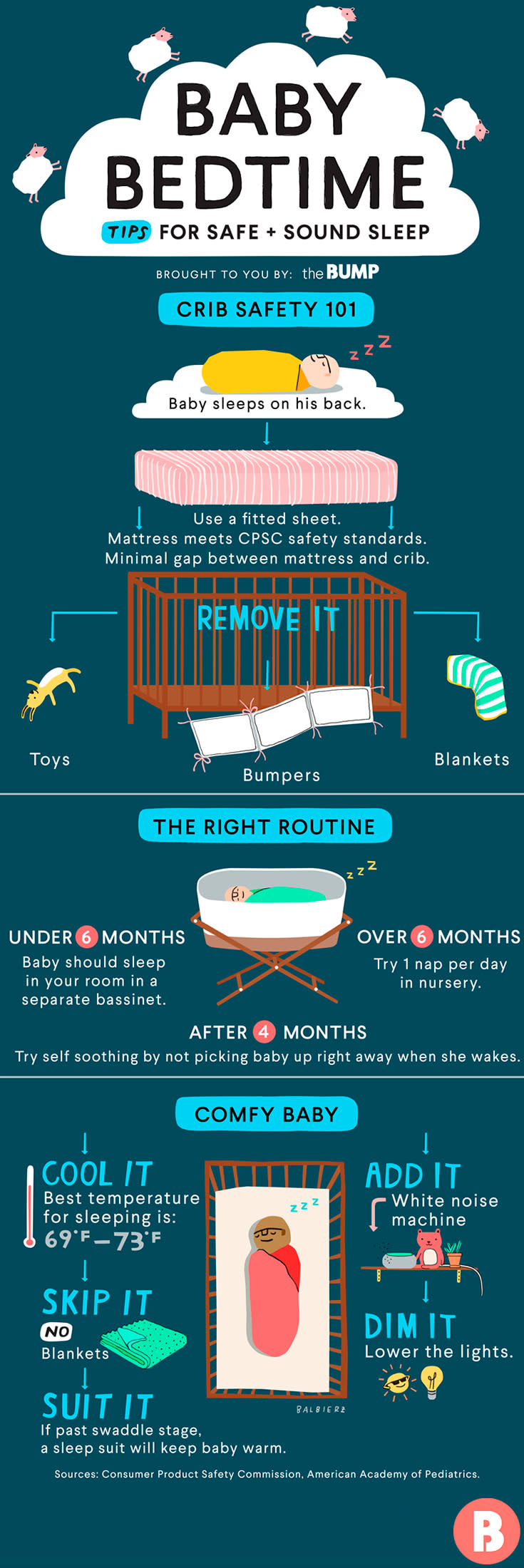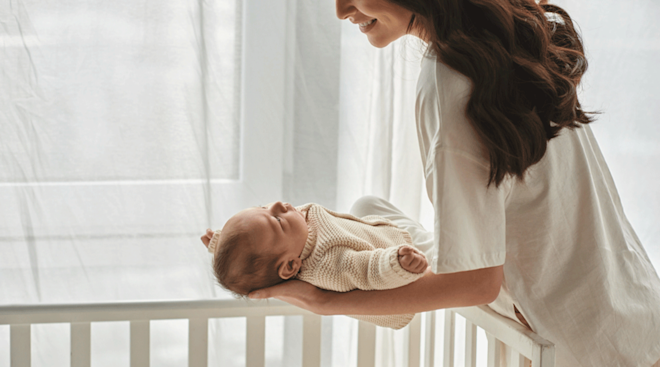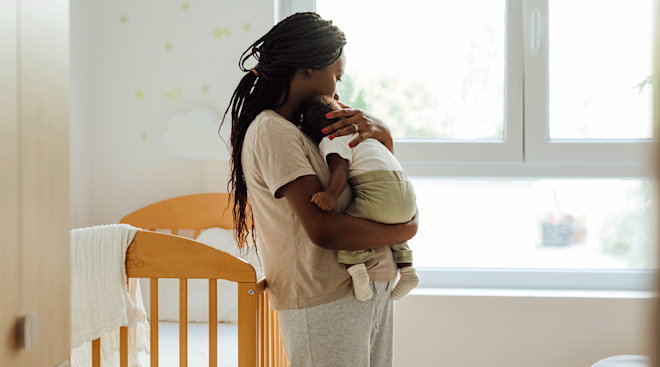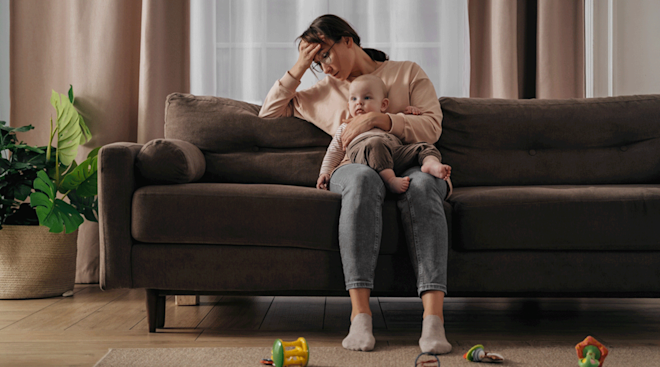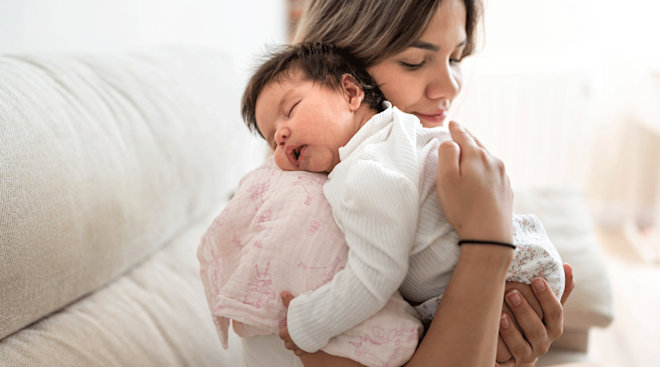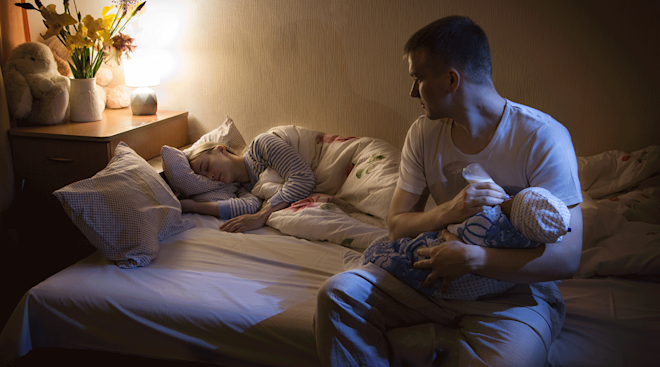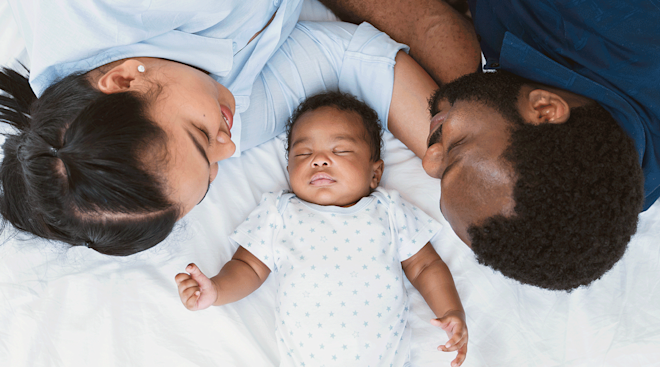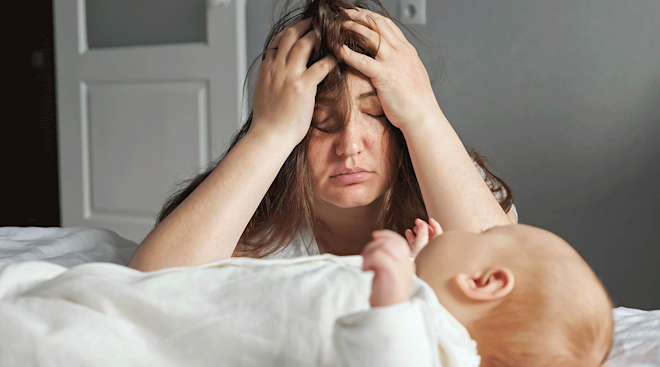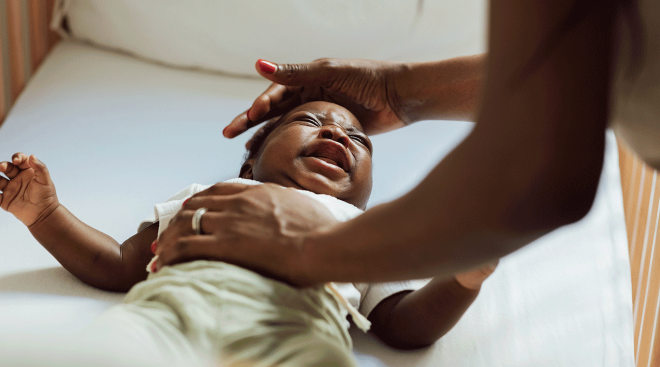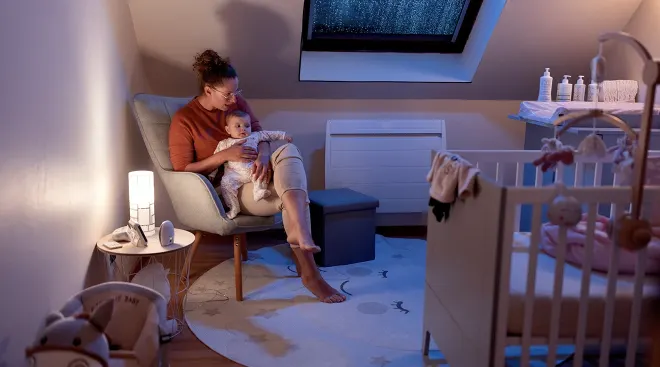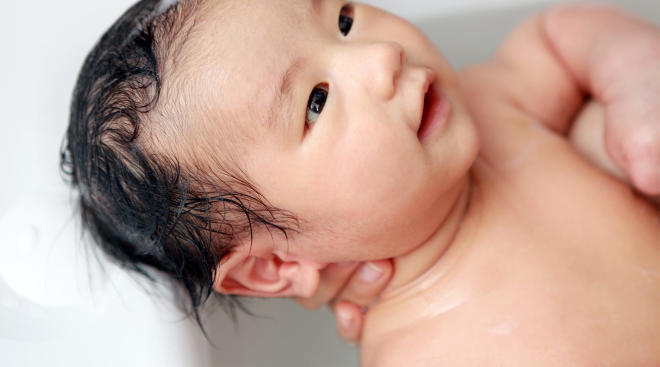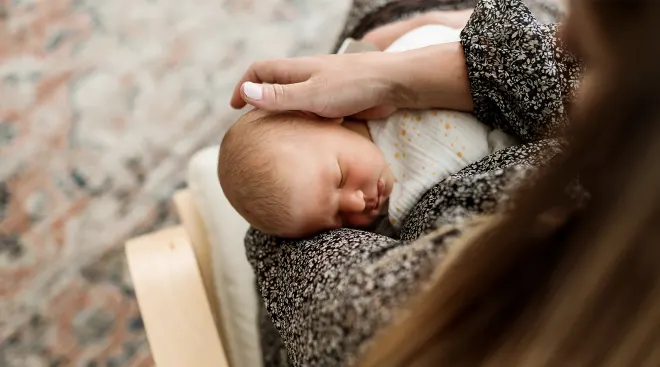Common (Sleep) Sense: How to Help Baby Develop Healthy Sleep Habits
It typically takes 12 to 24 weeks for baby to start sleeping through the night, but it’s never too early to help baby develop healthy sleep habits. This starts with encouraging independence and getting her to fall back asleep on her own, says Dana Obleman, founder of The Sleep Sense Program). Follow her advice to help baby (and you!) get more zzz’s.
Conquer the day-night reversal
Newborns tend to mix up days and nights, so make it your mission to help baby begin to differentiate between the two during those first few weeks at home. When baby is awake during the day, keep her out of the bedroom and expose her to natural light and everyday sounds. Just avoid calming situations (like a swing) that might encourage snoozing. During naptime and bedtime, keep the lights off so she learns to associate darkness and quiet with going to sleep. If and when baby wakes at night, make your encounter all business: Feed her, burp her, change her and put her back in the crib. Save conversation, music and playtime for daytime.
Establish a bedtime routine
Following the same steps each night will gradually teach baby that this series of events signals bedtime. In the same order every night, take about 30 minutes for bath time, diaper and pajama changes, and a soothing massage and feeding, followed by a story or song. Make sure baby stays awake the entire time and always keep at least one step between feeding and sleep. “It’s important to create this distance between feeding and sleep, so baby doesn’t strongly associate one with the other,” Obleman says. Doing a shorter version of the routine for naptime is helpful as well.
Avoid snacking and snoozing
If baby falls asleep before he’s full, he’ll just wake up sooner out of hunger, which can turn into a vicious cycle in which neither of you is getting enough sleep, Obleman explains. To help baby stay awake so he can receive full feedings, have the lights on (or a dim lamp lit for nighttime feedings), place a cold compress on his hands or feet, and engage in a little activity. If baby is sleeping through daytime feedings, gently wake him so he stays on track, but if he’s sleeping through nighttime feedings, don’t disturb him—you’re on your way to getting him to sleep through the night!
Watch the clock, not baby’s cues
Babies tend to sleep in two- to four-hour intervals, with just enough time to feed and engage in a bit of play in between. “Newborns can only handle about 45 minutes of time awake,” Obleman says. But since newborns don’t often show clear signs they’re getting fatigued, parents often wait to put baby to sleep until she’s fussy—which usually means she’s overtired and it’s too late. Instead, if you watch the clock and catch baby in that sweet spot when she’s tired, but not too tired, she’ll often fall asleep quite naturally once you lay her down in the crib or bassinet.
Our infographic details sleep safety tips and advice for baby’s best sleep:
Eliminate sleep props
Soothing baby to sleep through breastfeeding, rocking, swings, vibrating chairs or other props can be really helpful from time to time—just don’t let them become your go-tos. “You don’t want to get into the habit of giving baby a soother every time he’s trying to fall asleep,” Obleman says. “Otherwise, you’ll get to the point where he starts to depend on them and will only go back to sleep with them.” That means if he wakes in the middle of the night, he won’t know how to fall back asleep on his own—and that can be a hard habit to break. Also avoid putting anything that can distract baby near the crib, such as a mobile.
Give baby time to fall asleep solo
“With my own baby, the thought that he could fall asleep on his own didn’t really occur to me,” Obleman says. “But the truth is, babies can and the more they do, the better their independent sleep skills will become.” Obleman isn’t suggesting you leave a newborn unattended for any length of time, but try giving baby a little bit of exploration time to see if she can fall asleep without a whole lot of extra assistance from you or your partner. If you experiment with different times and keep trying, there will be opportunities, like the first nap of the day, when you can put baby down and she’ll naturally fall asleep on her own—and that’s the path you want to be going down.
Please note: The Bump and the materials and information it contains are not intended to, and do not constitute, medical or other health advice or diagnosis and should not be used as such. You should always consult with a qualified physician or health professional about your specific circumstances.
Navigate forward to interact with the calendar and select a date. Press the question mark key to get the keyboard shortcuts for changing dates.

































